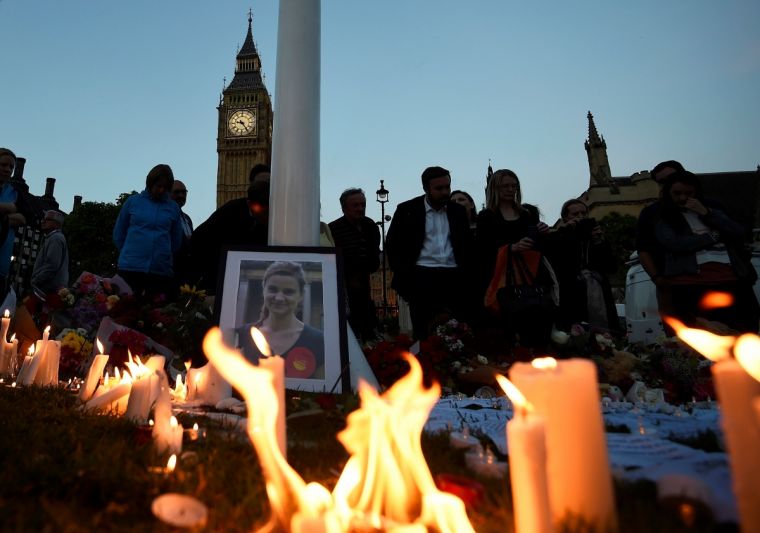Why we must challenge hatred and point the way to hope

It's probably inevitable that the cut and thrust of electioneering drives to the heart of people's fears and insecurities. Its understandable that candidates warn of a nightmare and promise a dream. What is not so acceptable is that truth, justice and decency seem to be easy to compromise to attain the goal of political office.
I live, work and worship in Luton. Campaign rhetoric can get very up close and personal in places like this. It's a highly diverse town, perhaps the most diverse in the UK. Many in our community, including the churches, work hard to make that diversity an asset rather than a liability. Contrary to the rumours out there, for very many it really is a great place to live. The challenges that our present Brexit-focused election is bringing to the fore will play out in towns and cities like ours.
However we know that there are many who express genuine insecurities, who feel alienated, whose identity feels threatened, and who have many questions about government policies that have made our town what it is. It would be wrong to say we are a town where conflict is always present, but it's fair to say the potential for conflict is not far below the surface. While over recent years Luton has had its fair share of extremism to deal with – from within the Muslim community and from the far right – we refuse to lay down and let the town be defined by extremism.
As a mediator and community peace-builder based at St Mary's, the town centre Parish Church of Luton I work along with the churches, with Muslim colleagues and other faiths to build bridges, to challenge injustices and build the resilience of our community. As a Christian I believe the Kingdom of God is one of peace and justice. I'm realistic it's not here in its fullness, and that sometimes I'm continually wading through muck, but I pray for that Kingdom – and its peace - to grow among us.
Campaigning during last year's European Referendum often fell into the realm of wild guesses and indulged in what can only be called discrimination. It was in the ferment of that campaign that MP Jo Cox was murdered. Thomas Mair, her assassin, was a man who was very angry at the EU and immigration, and viewed Cox as a "traitor to white people." It seemed that the political campaign legitimised hatred and bigotry, which resulted not just in death but thousands more hate incidents and crimes. Last year's US elections saw the same trend, and currently "Fake News" and truth seem to be defined by political allegiance rather than reality.
Over the past eight years we've had many anti-Muslim demonstrations in Luton. The hatred poured out in our community has been nothing short of corrosive and poisonous, and we have done all we can to combat it. However in the past year it has seemed that the extremes we've faced for years have become normalised. As a Christian I'm warned of the power of the tongue to destroy – whatever our politics, lets seek to guard our tongues when we make political comments over these next weeks.
One of our close allies over the years of challenging extremism here in Luton has been HOPE not hate. I've found their model of community organising to engage with the issues that divide society and to bring people together resonates with my Christian approach. Just before Christmas former UKIP leader Nigel Farage accused Jo Cox's husband Brendan of knowing more about extremism than him because 'he backs organisations like Hope not Hate who masquerade as being lovely and peaceful but actually pursue violent and undemocratic means'. HOPE not hate, having asked for – and not received – an apology, have recently announced they are suing Farage for damages.
As a Christian I cannot afford to endorse people or groups whose actions counter violence and extremism with more of the same. And I cannot support political campaigns that stir up more division and hatred. Those are the charges Farage has made against HOPE not hate. If they were true, I could not remain a supporter of the organisation. But I know from my first-hand experience that they are false. Falsehoods must be challenged and that is why HOPE not hate are right, in my opinion, to pursue the truth in court.
Finally, as we challenge ideas and politics that are contrary to our faith – whether on the street protest or in an election – we need to do so in a way that shows we value the people holding those views and that we want to hear their concerns. They are often our neighbours or colleagues, they may indeed be our church members or their relatives. Let's challenge hatred and discrimination, and point the way to hope. And as Christian believers, as well as all people of goodwill, we should aim to positively impact the atmosphere of this election season.
Canon Peter Adams is director of the recently-formed St Mary's Centre for Peace and Reconciliation in Luton. He has been working in church based cross community relations for the past ten years. He is a Board Member of HOPE not Hate's charitable section. Follow @petergmadams











